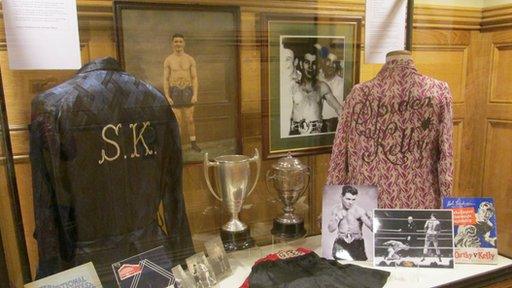GAA: The hurling trophy that was won once but lost twice
- Published
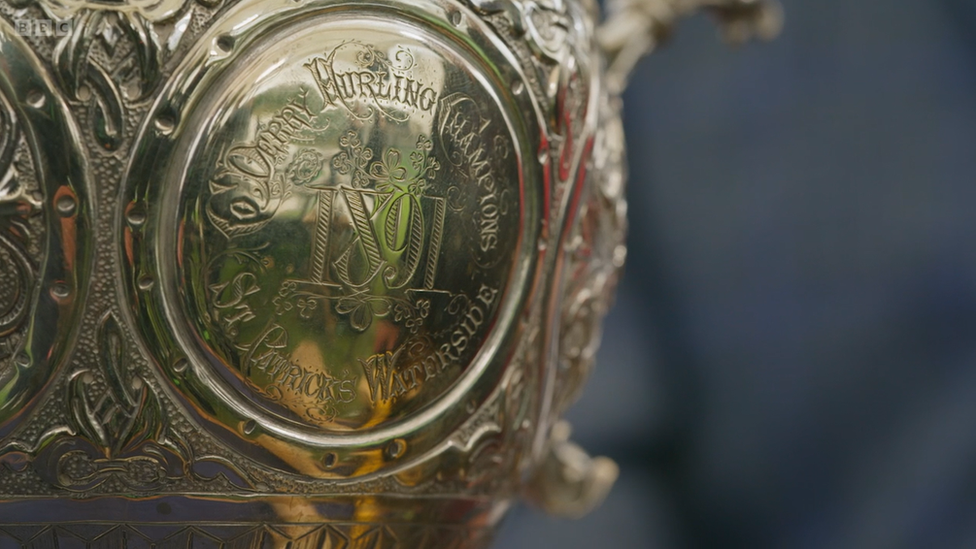
The Derry Senior Hurling Championship trophy is among the earliest in GAA history
In the field of competitive sport few moments capture the joy of victory as when a trophy is held aloft.
There are some trophies that garner a reverence beyond the sport in which they are contested.
Cricket has the Ashes urn, golf the Claret Jug, Gaelic football the Sam Maguire.
But in Northern Ireland's north west, the history of a rarely contested piece of sporting silverware that was long thought lost has now come to light.
The Derry Senior Hurling Championship trophy's story is a remarkable one, historian Dónal McAnallen said.
That's because it is possibly the Gaelic Athletic Association's (GAA) "oldest county championship trophy".
And yet only once - in its inaugural year of 1891 - was it contested for in the sport for which it was made.
It would disappear - for decades on end - not once but twice.
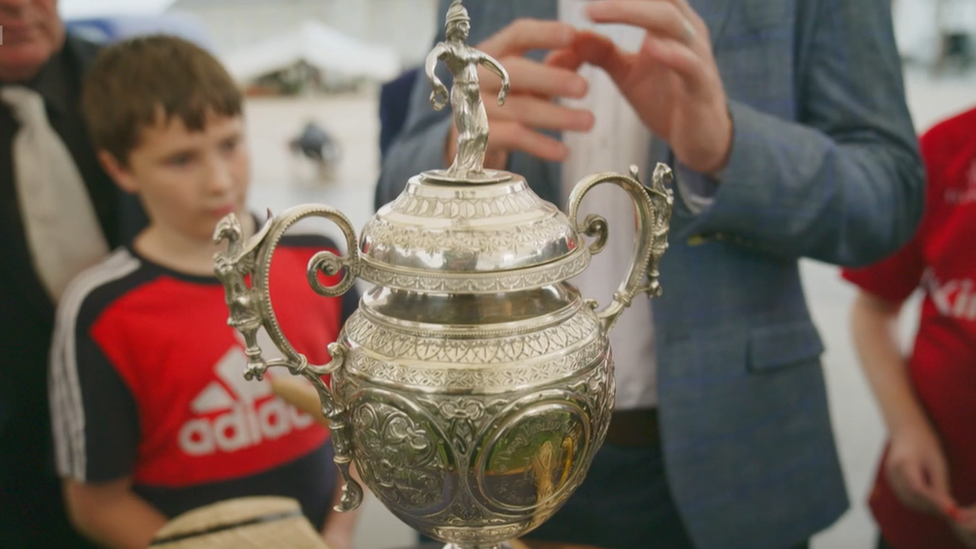
The trophy appeared earlier this month on the Antiques Roadshow
That its story has re-emerged is thanks in no small part to an appearance earlier this month on BBC One's Antiques Roadshow.
Back in 1891, the trophy was paid for by the clubs of Derry under the auspices of the Derry county board.
It was a time when the sport of hurling - known by many then as camán - was at the peak of its popularity in the city, Mr McAnallen said.
A Derry Journal reporter was at the first - and only - hurling final in which the trophy was contested.
On 5 August 1891, the paper noted a "large and enthusiastic field of supporters" had gathered two days previously in the city's Waterside for a match between Hibernians and St Patrick's, which was won by St Patrick's.
The side, Mr McAnallen said, were a "pioneer club, the first affiliated GAA club in whole of Derry".
The intention was that the trophy would be competed for each year and the first club to win it three times would keep it.
That would not be the case.
The cup would not be seen for another five decades.

What is hurling?
Hurling is played over two halves in 70 minutes
The field is slightly larger than a soccer pitch
Hurling uses sticks similar to hockey, but with a larger "toe" to pick up the ball and hit it more easily
Teams are comprised of 15 players
Points are scored by hitting the ball over the crossbar (1 point) or into the goal (3 points)
Scores are counted separately with goals first, e.g. 1-3 to 0-4. The scores are then added up to decide a win, so in this example the first team wins 6-4
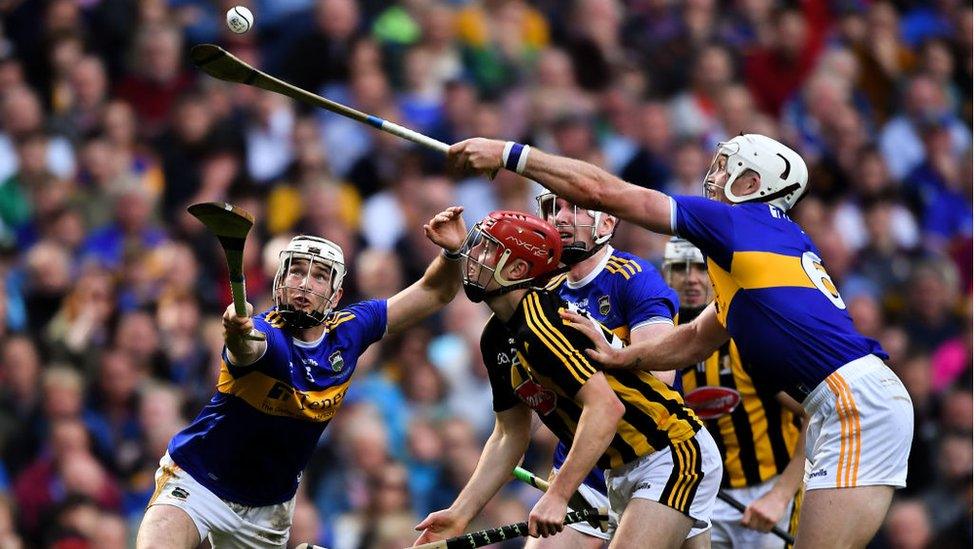

The 1890s was a decade of flux for the GAA, Mr McAnallen said.
The county board collapsed and hurling was largely surpassed in popularity by Gaelic football in the north west.
"There were no formal competitions again until the 1900s and the cup didn't resurface as such. The next we see of it is at a football tournament in 1934," he said.
That was the GAA's golden jubilee year.
The Derry Journal of 29 June 1934, reports St Patrick's Gaelic football team lifted the trophy.
The trophy was singled out for much more acclaim than any of the players.
"The history of this trophy reads like a romance," the Journal observed.
"It was won outright by St Patrick's, county hurling champions for that year (1891), who were captained by the late Frank Carlin who founded the first Gaelic club in Derry.
"The cup has since been in the possession of the Carlin family who treasure it, and who put it up for competition only on account of the special significance attached to the current year."
Another disappearance
The trophy then disappeared again and would not be seen for another 50 years.
"It wasn't heard of again until 1984, the GAA's centenary year, when it emerged out of the Waterside parochial house," Mr McAnallen said.
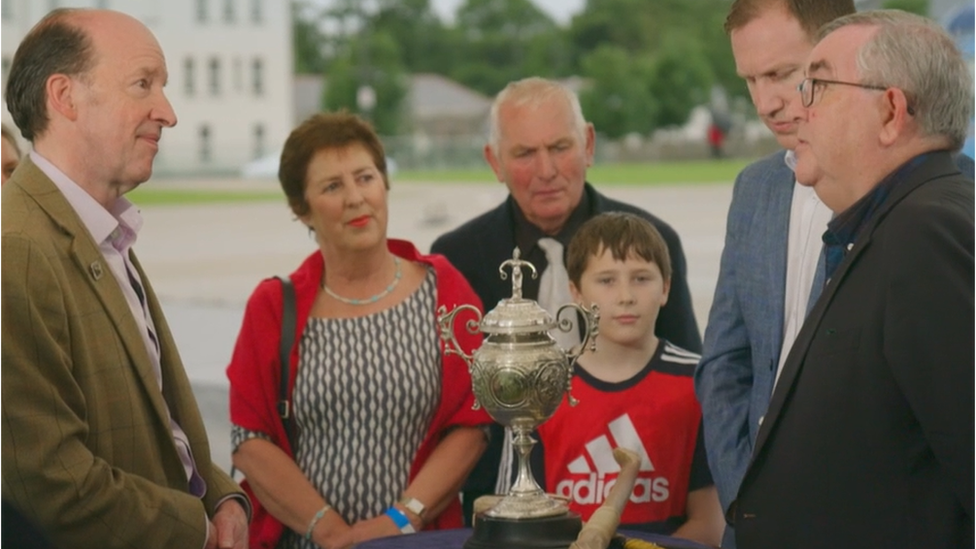
Expert Gordon Foster valued the cup at £1,000
Antiques Roadshow expert Gordon Foster said the cup was "a splendid sporting trophy" and valued it at about £1,000.
But it has a worth far beyond that valuation, Mr McAnallen said.
"People don't necessarily associate one of the earliest trophies in the GAA for hurling with Derry city", he said.
"It reflects the fact that hurling was one of the principal sports in the north west.
"It's a key to understanding and unlocking that aspect of history in the north west."
The trophy is now display in the Derry GAA Centre of Excellence in Owenbeg.
Related topics
- Published16 November 2019
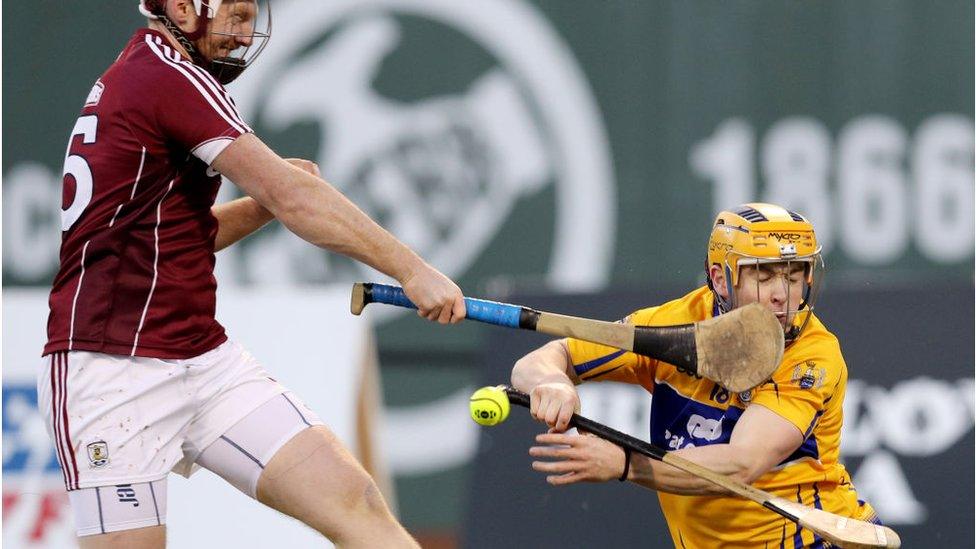
- Published11 December 2013
